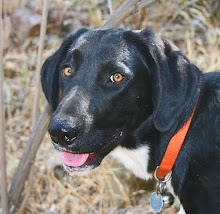
Butte Lake Campground, Lassen National Park:
The grandkids were swimming at Butte Lake when I overheard the camp host mention otters to a family near by. It piqued my interest, and later that afternoon I was lucky enough to engage the host as he was making the rounds checking camp sites.
"I overheard you mention otters today down at the boat launch. Are they stealing fish?"
"No, but we had one bite a swimmer here on the 4th of July. He was checked in right here at this camp site." Small coincidence.
The victim, I learned, was a young man in his thirties, who had planned to spend a few days at Butte Lake with his wife and 8-month old baby. They arrived at 5:00 that afternoon, unpacked, and went to the lake for a swim. The husband swam out about 100 yards, while mother and baby waited on the beach. Then he turned around and headed for shore. His wife saw the otter swimming towards him when he was about 50 feet from the beach.
It was NOT a member of the local welcoming committee. The otter sunk its teeth into the man's upper calf, and worked its way forward, biting him above the elbow, on the latissimus (under the arm), and twice on the face below the eye. I gathered that the body bites were on the right side, and the facial bites were on the left.
So much for a happy family camping trip. They left at 8:00 that evening, and headed for the nearest hospital in Susanville, an hour and a half away. The face bites required 11 stitches, and the doctors started rabies inoculations. One aggressive otter curtailed a three day camping trip to 3 hours, and the National Park Service posted a warning.

Apparently otter attacks are becoming more common in the US, and the most likely explanation is that human recreation is becoming more common in otter habitat. Otters are highly territorial and don't tolerate the intrusions of neighboring otters. Thay also have strong maternal instincts. So it is NOT unnatural for a mother to defend her youngsters against large swimming mammals that splash about and make loud noises. To a wild otter people can be scary as hell.
Perhaps that's what happened at Butte Lake. The otter birth peak is in March and April, and the young aren't weaned for another three months. This puts the mother and her mobile but inexperienced youngsters in the water in June and July, when they forage together as a family. You can expect such mothers to be protective.
That would explain the other July otter attack in the Sierra Nevada and one that took place in April when an otter attacked a crew team on the Connecticut River.
More difficult to explain however are otter attacks on pets. One would expect a territorial otter to drive a frisky lab out of the water, but wildlife biologists scratch their heads when an otter attacks and drowns an Eskimo dog. Is this normal behavior? Have they been eating bad (=chemically contaminated) fish? Or are they suffering from rabies?
Inevitably the call goes out to remove the animals.
Which raises the question. Where else but in nature do we punish healthy maternal instinct?
As this codger sees it, if you you want to live close to nature, be prepared for the risks. Isn't it better to be bitten by an otter than the Taco Bell chihuahua?

3 comments:
We feel that we are guests here among the "wildlife", but sometimes the locals take things a bit far. Not that I would like to get bitten by an otter or attacked by the Taco Bell Chihuahua, but having cassowaries trying to get into the house is a bit much. This youthful bird I refer to here would happily spend the afternoon in the lounge room, if invited. The "poo factor" puts it off a bit.
Wow. Otters. The state of New Mexico is going to reintroduce river otters into the Gila and Rio Grande Rivers, and we hope the Wind River Ranch can get on the list too.
I agree you 1000%- if you want to live where wild animals roam be willing to except the risks. I guess next time I go swimming in otter country I "otter" be careful ;-)
Post a Comment